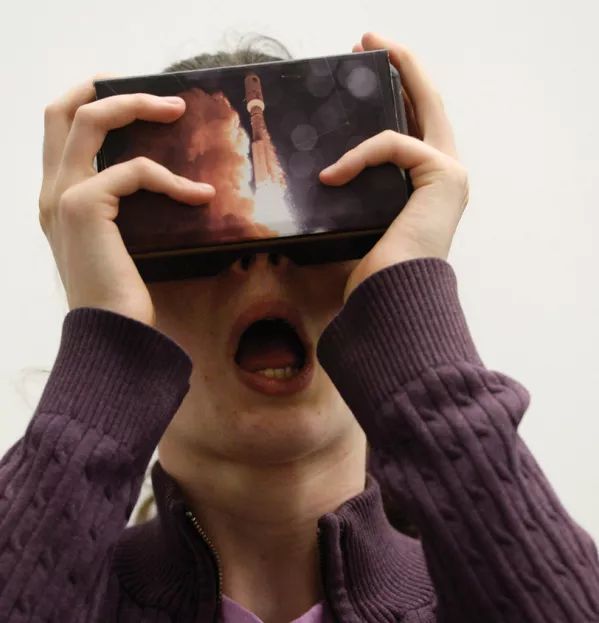Schools turn to the public to fund new IT projects

Technological advances such as virtual reality have tantalising potential for teachers, but squeezed school budgets are putting the equipment out of reach for many. Now, schools are turning to crowdfunding in the hope that the public can help bridge the gap.
Rocket Fund, thought to be the UK’s only crowdfunding platform aimed at teachers, enables schools to raise donations for projects costing up to £1,500. As the site went live last week, schools were hoping to acquire equipment including music software, virtual-reality headsets and robotic Lego.
The crowdfunding pages can be shared via social media. But, unlike similar cash-raising platforms, donors receive a thank-you letter rather than rewards for their contribution.
The scheme is dependent on people to donate out of goodwill, but it has already attracted criticism from those that feel sufficient funding should be provided by the government.
This week, the National Audit Office warned that standards were being put at risk by education funding cuts, with schools expected to save £3 billion by 2019.
Andrew Morris, head of pay and pensions at the NUT teaching union, said: “We’re one of the world’s richest countries. Schools should not have to go cap in hand like this to parents, and now to the public. The government needs to improve their funding instead of planning to cut it in real terms.”
‘Freedom to innovate’
In August, the NAHT headteachers’ union warned that inadequate government funding was forcing schools to ask parents to pay for iPads for use in lessons. But Helen Goulden, executive director at innovation charity Nesta, which set up the site, denied that it set out to plug any government funding shortfalls.
She said: “Rocket Fund is about giving teachers more freedom to innovate and experiment with new things that they think will make a difference to how their pupils learn.
“The idea is to empower teachers to try new things. If what they try works out well, it will make it easier for the school to justify including it in their budget the following year.”
The site can only be used for “non-core” items and could help teachers to more effectively target funding to the needs of their pupils, unlike “mass top-down roll outs of classroom technology”, she added.
Projects featured on the site include one from Morpeth School, in East London, which hopes to buy three Ableton Push 2 music-making devices, costing £1,438 in total.
Ryefield Primary School, in West London, hopes to buy a batch of VR headsets to expand on its use of Google Cardboard and Google Expeditions, costing around £1,500 - with the school match-funding any donations.
The idea is to empower teachers to try new things
Headteacher Colin Tucker explained on the site that the project came about after the school hosted a Google Expeditions workshop: “It was clear that this technology would not be a fad, or a flash in the pan. VR could enhance writing, enable memorable learning experiences of complex processes and stimulate high-quality speaking and listening among our vulnerable pupils in our special-needs hub.”
The Douay Martyrs Catholic Secondary School, also in West London, hopes to raise £1,469 for robotics equipment, to help with teaching coding and carrying out practical projects. Head of computing Sam Alner wrote on the school’s donation page that the project would invest in Lego Mindstorms kits, so that the school could form a robotics club.
He wrote that computer science was highly popular at GCSE and A level, but “there is a lack of infrastructure and funding within the school to support extracurricular clubs that make use of robotics and other equipment”.
Newington Green Primary School in North London is asking for £1,523 to buy augmented and virtual reality equipment.
The proportion of students at each school that attract the pupil premium is stated for every project and Nesta plans to give greater priority on the site to schools based in deprived areas, or those with the highest rates of pupils on free school meals.
The charity also hopes that businesses will offer to match-fund projects, and that teachers will use the site to discuss how they have used different technology in the classroom.
You need a Tes subscription to read this article
Subscribe now to read this article and get other subscriber-only content:
- Unlimited access to all Tes magazine content
- Exclusive subscriber-only stories
- Award-winning email newsletters
Already a subscriber? Log in
You need a subscription to read this article
Subscribe now to read this article and get other subscriber-only content, including:
- Unlimited access to all Tes magazine content
- Exclusive subscriber-only stories
- Award-winning email newsletters